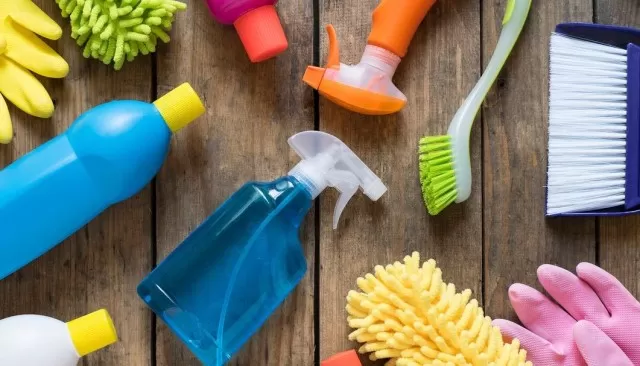Remember to responsibly dispose of items through recycling or other eco-friendly methods whenever possible to contribute to a sustainable lifestyle.
It’s important to recognize that not all household items are designed to stand the test of time, and decluttering your living space by disposing of or recycling items past their prime can be highly beneficial.
By taking a closer look at the expiration dates on various household objects, you can create more room for the items you regularly use and ensure a cleaner and more organized home. By following these guidelines and adopting a proactive approach to decluttering, you can maintain a cleaner, more spacious living environment and ensure that your household items remain fresh and effective for their intended purposes.
Household Items You Should Throw Away At Once

Here are some household items that you should consider tossing or replacing regularly to maintain a clean and organized living space:
Dish Sponges: Replace kitchen sponges every month due to potential bacterial buildup.
Expired Food: Check for expiration dates and discard any expired or spoiled items in your refrigerator.
Plastic Containers: Dispose of worn-out or cracked plastic containers, especially disposable ones, as they may leach chemicals into your food.
Pillows: Replace pillows every few years, as they collect dust, oil, and debris and may harbor dust mites.
Household Cleaners: Dispose of household cleaners after two years, as their effectiveness may decrease over time.

Cooking Oils, Herbs, and Spices: Replace olive oil after two years and herbs/spices after one year to maintain their flavor.
Toothbrushes: Replace toothbrushes every three months to ensure effective teeth cleaning and avoid bacterial buildup.
Photo Negatives: Digitize old photo negatives to preserve them and free up storage space.
Eye Makeup: Replace eye makeup products like mascara, eyeliner, and eyeshadow every six months to avoid potential irritation or infection.
Business Cards: Instead of storing stacks of business cards, add contact information to your phone’s contacts and recycle the cards.
By regularly tossing or replacing these household items, you can keep your living space clean, organized, and free of potential health hazards.
Additionally, consider eco-friendly disposal methods, such as recycling or donating when appropriate, to minimize waste and contribute to a sustainable environment.
What are some common household items?

Here is a list of common household items that are often used and found in homes:
Refrigerator: An essential appliance used to store and preserve food at low temperatures.
Television (TV): An electronic device that displays visual content and broadcasts various channels and programs. Sofa: A comfortable seating furniture piece designed to accommodate multiple people.
Table: A flat surface supported by legs, used for various activities such as dining, working, or playing games. Chair: A piece of furniture with a seat, backrest, and often armrests, used for sitting.
Bucket: A container with a handle used for carrying and holding liquids or other materials. Basket: A container made of woven materials such as cane or plastic, used for holding and carrying items.
Kettle: A vessel with a lid and spout, used for boiling water or making hot beverages. Stove: A kitchen appliance used for cooking by providing heat to pots and pans.
Dishwasher: An appliance designed to clean dishes and utensils automatically. Broom: A cleaning tool with a long handle and bristles used for sweeping floors.
Mop: A cleaning tool used to wash and clean floors, typically made of absorbent material. Lamp: A light source usually with a stand, used to illuminate a room.
Clock: A device used to measure and display time, often found on walls or tabletops. Mirror: A reflective surface used for grooming and checking one’s appearance.
Bed: A piece of furniture designed for sleeping and resting. Pillow: A soft cushion used to support the head and neck while sleeping.
Curtain: A piece of fabric hung over windows or doorways for privacy or decoration. trash can: A container used to hold and dispose of waste materials.
Toaster: An appliance used to toast bread or other baked goods. These are just a few examples of common household items that are commonly found in homes and serve various purposes in daily life.
*The information is for reference only.